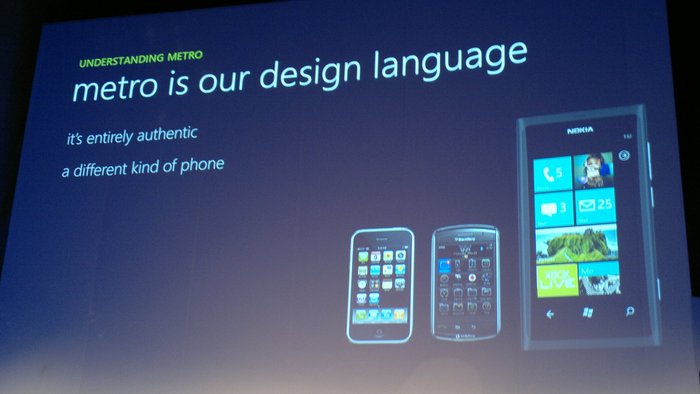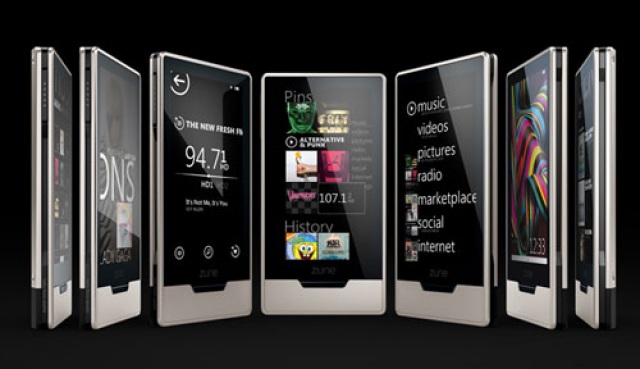It might seem on first glance that all the effort to build up the user interface (UI) and the branding efforts around Metro are going to go to waste, but that's not the case. By having this name change forced upon them, Microsoft have been handed a number an opportunity that I don't think they would normally consider.
Microsoft's naming conventions are rather... long. I'm sure there's a department in Redmond who would think that a really good name for an upcoming smartphone would be "The Windows Phone 8 Metro UI powered Nokia Lumia 911 PureView". That's a mouthful, and while it's technically right, it's not as snappy as "Galaxy".
The loss of Metro UI as a brand name is a chance (albeit a small one) to look once more at consumer electronics branding. Xbox managed to get a short and snappy Microsoft name into the public conscious, so any reason to trim down the title works for me. The potential adoption of 'Windows 8 style' as the UI nomenclature will go some way to reducing the wordage.
("Metro UI" is shorter than "Windows 8 style"! Plus Microsoft might yet go with the long and ungainly "Windows 8 Modern UI-Style Apps" as we reported was a possibility! -- Ed)

Shall we make that 'was the design language'?
It's also going to help the idea of the 'ecosystem'. This has been a popular word in the smartphone world, and speaks to the idea of selling not just the smartphone, but also the app store, the music and video store, and a suite of applications and services that all talk and interact with each other. As we move further into this decade, the idea of an ecosystem through your whole life is already taking hold.
Apple have a strong lead in this area, with the tight integration of their Mac computers, iPhones, iPads, and with the 'hobby' of the Apple TV giving them a foothold in the living room. All of these are connected by the word 'Apple'.
Microsoft are coming to the same party, but from another angle. Arguably the Xbox 360 won the last round of the battle for the living room, and is a well established presence. However, it doesn't really tie in with a desk bound computer, and while there are overtures between Xbox Live on the console and Xbox Live on the Windows Phone 7 handsets, you couldn't really call them integrated.
That's what Windows 8 promises and is exactly what's needed - a consistent branding of 'Windows 8' across the Xbox, computers, tablets, and smartphones. Why duplicate the effort with the name 'Metro' in the mix as well?
Metro has never been consistent anyway, constantly changing on every device to suit the purpose required. The design language changed from early implementations on Windows Media Centres, through the various Zune devices, then morphing into the variant of Metro that can be seen in Windows Phone 7. By virtue of volume, the latter dialect of Metro is the dominant one, but it's a bumpy landscape.
 Once upon a time, this was Metro - On the Zune HD
Once upon a time, this was Metro - On the Zune HD
While the UI will change between devices under the Windows 8 banner, drawing a line under previous UI's allows marketing to say "this is the public version, this is the one that has evolved to be the best". So why call it by the old name? Metro can be sacrificed to reestablish itself. The king is dead, long live the king!
And all the headlines would have stressed one element to the watching public... Microsoft has a new UI on the way with Windows 8.
Okay, everyone who writes about Microsoft is going to have to tread carefully and not automatically type Metro into their articles, and I'm sure us geeks will put a huge spotlight on this issue, but we're not the market that Microsoft is addressing or selling to; we're going to buy these devices, even if they do have a silly name. Microsoft need to deliver a clear message, a simple message, an understandable and focused message to the public. Losing the name Metro gives them another reason to simplify the Windows 8 story they need to sell during the rest of 2012 and into 2013. Like Chris Froome in the Tour De France, it's time for Metro to peel away and let the rush of Windows 8 devices take the glory.
Goodbye Metro, your work here is done.
